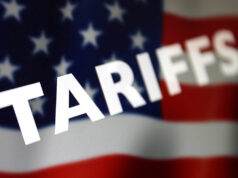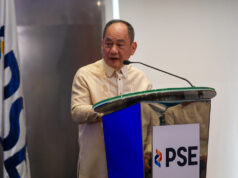DoF still banks on watered-down tax amnesty program to deliver
THE DEPARTMENT OF FINANCE (DoF) remains hopeful that an impending tax amnesty program that has been ratified by Congress — but without two provisions initially designed to help verify claims made by delinquents in their applications — will grow the ranks of taxpayers in the country.
Congress ratified the tax amnesty measure last week which provides relief for those with unpaid national taxes for years up to 2017. It is now up for signature by President Rodrigo R. Duterte.
The final ratified version did not contain provisions to relax bank secrecy restrictions that would have helped verify whether participating individuals and business would be truthful about asset and other declarations that would be the basis for amnesty payment, as well as for automatic exchange of information (AEoI) with foreign tax authorities to help detect cross-border tax evasion and money laundering.
“We hope relevant taxpayers, and those who are currently non-taxpayers, will come out of the woodwork and avail of the generous amnesty provisions,” Finance Assistant Secretary Antonio G. Lambino II said in a mobile phone message on Saturday, even as he added: “… [w]e regret not having the provisions on the lifting of absolute bank secrecy and AEOI in the bill.”
“While the bill was supposed to allow taxpayers a fresh start via amnesty, it was also meant to signal a more aggressive fight against tax evasion. Those two missing provisions would have been formidable tools to detect and go after tax evasion.”
Legislators and tax experts said that inclusion of the said measures would have violated the Constitutional provision that a law must have only one subject matter.
The DoF has argued that the deleted provisions were integral parts of the program.
The House of Representatives Ways and Means committee leadership has said that it is open to filing another bill containing the deleted provisions and will wait for DoF to propose a draft.
Only the first of up to five planned tax reform packages has been enacted so far which cuts personal income tax rates and either increases or adds levies on various items.
President Rodrigo R. Duterte had asked for legislative approval of all the other packages by yearend, since lawmakers are expected to be increasingly distracted by campaigning for the May 13, 2019 mid-term elections.
Congress is currently on a Dec. 15, 2018-Jan. 13, 2019 break and its resumed session on Jan. 14-Feb. 8 is not expected to be as productive due to election campaigning, while the May 20-June 7 session is expected to see poor attendance in the aftermath of the polls.
The remaining tax reform packages involve corporate income cuts and removal of redundant fiscal incentives; higher taxes on minerals, tobacco and alcohol; a universal property valuation system as well as rationalization of taxes on financial instruments.
Although the main objective of tax amnesty is to grow the tax base, the DoF had expected the program in its original version to generate P41 billion in additional revenue, and only P26 billion without the easing of bank secrecy and the AEoI.
The last amnesty program was in 2008 from which the government raised P4.91 billion. Prior to that, there were 17 offers since 1972.
The latest planned program imposes an amnesty charge equivalent to a portion of taxpayers’ outstanding unpaid taxes in exchange for immunity from civil, criminal and administrative penalties. It will cover unpaid estate tax, other national taxes as well as delinquency in specific circumstances. Taxpayers will be given a year from issuance of implementing rules to avail of amnesty, except in the case of estate tax amnesty for which interested parties will be given two years to avail. — Elijah J. C. Tubayan



